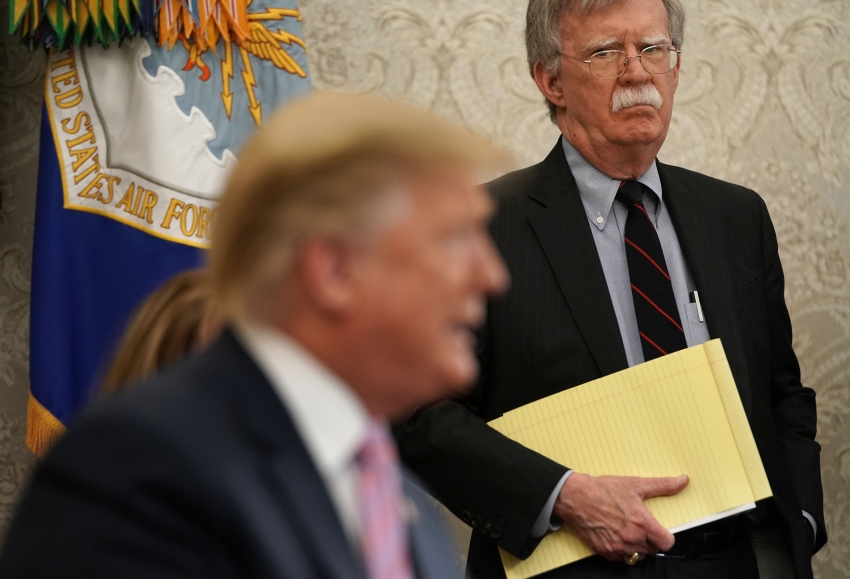by NOAM CHOMSKY

Led by John Bolton, the Trump administration is pursuing catastrophe to protect U.S. dominance.
Assuming that rationality prevails and that Bolton and co. can be contained, the U.S. will continue with the successful program of crushing Iran’s economy and punishing its population.
The threat of a U.S. attack on Iran is all too real. Led by John Bolton, the Trump administration is spinning tales of Iranian misdeeds. It is easy to concoct pretexts for aggression. History provides many examples.
The assault against Iran is one element of the international program of flaunting overwhelming U.S. power to put an end to “successful defiance” of the master of the globe: the primary reason for the U.S. torture of Cuba for 60 years.
The reasoning would easily be understood by any Mafia Don. Successful defiance can inspire others to pursue the same course. The “virus” can “spread contagion,” as Kissinger put it when laboring to overthrow Salvador Allende in Chile. The need to destroy such viruses and inoculate victims against contagion—commonly by imposing harsh dictatorships—is a leading principle of world affairs.
Iran has been guilty of the crime of successful defiance since the 1979 uprising that deposed the tyrant the U.S. had installed in the 1953 coup that, with help from the British, destroyed the parliamentary system and restored obedience. The achievement was welcomed by liberal opinion. As the New York Times explained in 1954, thanks to the subsequent agreement between Iran and foreign oil companies, “Underdeveloped countries with rich resources now have an object lesson in the heavy cost that must be paid by one of their number which goes berserk with fanatical nationalism.” The article goes on to state, “It is perhaps too much to hope that Iran’s experience will prevent the rise of Mossadeghs in other countries, but that experience may at least strengthen the hands of more reasonable and more far-seeing leaders.”
Little has changed since. To take another more recent example, Hugo Chávez changed from tolerated bad boy to dangerous criminal when he encouraged OPEC to raise oil prices for the benefit of the global south, the wrong people. Soon after, his government was overthrown by a military coup, welcomed by the leading voice of liberal journalism. The Times editors exulted that “Venezuelan democracy is no longer threatened by a would-be dictator,” the “ruinous demagogue” Hugo Chávez, “after the military intervened and handed power to a respected business leader, Pedro Carmona”—who quickly dissolved the National Assembly, suspended the constitution and disbanded the Supreme Court, but, unfortunately, was overthrown within days by a popular uprising, compelling Washington to resort to other means to kill the virus.
The quest for dominance
Once Iranian “successful defiance” was terminated, and the “clear-eyed” Shah was safely installed in power, Iran became a pillar of U.S. control of the Middle East, along with Saudi Arabia and post-1967 Israel, which was closely allied with the Shah’s Iran, though not formally. Israel also had shared interests with Saudi Arabia, a relationship now becoming more overt as the Trump administration oversees an alliance of reactionary Middle East states as a base for U.S. power in the region.
Control of the strategically significant Middle East, with its huge and easily accessible oil reserves, has been a centerpiece of policy since the U.S. gained the position of global hegemon after World War II. The reasons are not obscure. The State Department recognized that Saudi Arabia is “a stupendous source of strategic power” and “one of the greatest material prizes in world history.” Eisenhower described it as the most “strategically important part of the world.” That control of Middle East oil yields “substantial control of the world” and “critical leverage” over industrial rivals has been understood by influential statesmen from Roosevelt adviser A. A. Berle to Zbigniew Brzezinski.
In These Times for more
